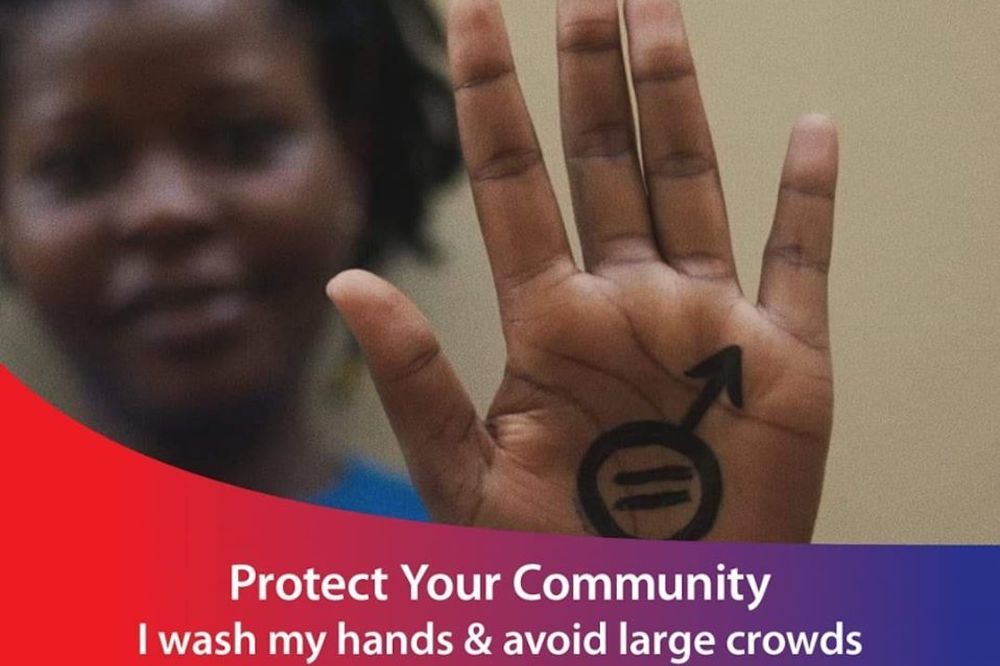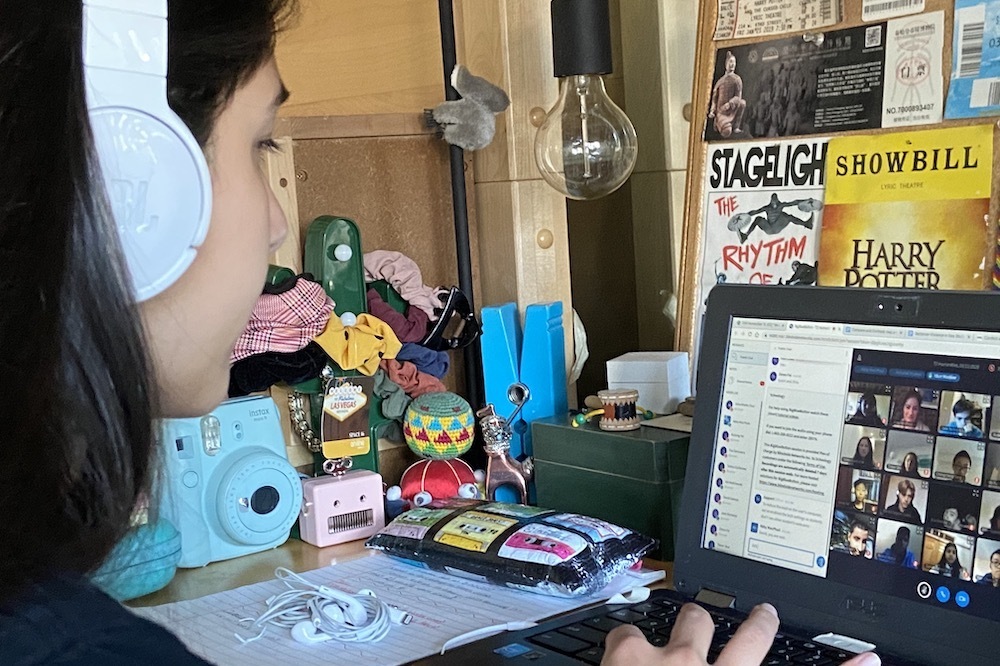
‘We are afraid of the unknown’ … Global Youth Ambassadors on the effects of the coronavirus pandemic

Coronavirus and education, Global Youth Ambassadors
Young people around the world are being affected by the coronavirus pandemic. The mass shutdown of schools in more than 130 countries, orders to stay at home and the fear of contracting the virus are among the ways in which their lives have been impacted. We asked some of Theirworld's Global Youth Ambassadors - our network of young activists - to share what changes they are seeing because of coronavirus.
Pertulla Ezigha from Cameroon
The consequences of Covid-19 in Cameroon are not good. The borders have been closed and schools shut.
There are no well-defined ways to go through with online learning. Most children and secondary school students do not have access to laptops and good phones to support online education and learning. For those who have access to the internet, it can still be a problem and might be expensive for most parents.
Some parents have taken this opportunity to send their children to hawk in the streets instead of keeping them safe at home.
We are afraid of the unknown because of the poor health facilities. Nonetheless we are doing our best to keep on sharing preventive measures that will help curb the spread of the virus.
I am most sad for children who will not be in school till further notice and the fact that many do not still take this seriously as they should.
Yara Eid from Palestine, currently based in Scotland
I personally find this time a very stressful one. I know that my mental health has been greatly affected by what has been happening around the world because of the coronavirus pandemic and I want to share some of my thoughts here.
This has been such a stressful and threatening time for all of us around the world. But seeing lots of social media posts and stories about the lockdown, I want to remind people of how lucky some of us are during this tough period.
When people started panicking about the coronavirus and started stocking up food and cleaning products, and universities shut down, the only thing I was thinking about is my home, Gaza.
I started having flashbacks of the war, being in complete lockdown for 52 days. The difference is that we did not have electricity, access to clean water, internet or even enough food.
We were in complete lockdown because bombs were dropping on us from everywhere and no one knew who would be the next victim. And unlike coronavirus, the bombs did not distinguish between old people or infants – everyone and everything was at high risk.
Gaza has been in complete lockdown for 14 years, not 14 days! Close friends of mine have been freaking out about the fact that they can’t see their family for 14 days or they can’t return home for a few months, which is completely understandable. But imagine not knowing when you will be able to go home or see your family while they are living in a war zone.
I haven’t been able to go home for almost four years now or see my family.. and this is just me. I have friends who haven’t seen their family in Gaza for more than eight years.
Lots of my people outside Gaza managed to return home because of this pandemic and quarantine with their families, where they have a safe environment and access to their needs. But there are many people who can’t return home or do not have their basic needs and are so vulnerable in these times.
So for the people who are complaining about what is happening now and refusing to stay home, I really urge you to reflect on your actions and on this. You are so lucky to have a safe home where you can protect yourself.
Let’s help each other in this tough period and remember the many who are vulnerable. Next time you think about Gaza or read about it in the news, remember how you felt in your safe home with your family at this time. This has been the reality of Gaza for 14 years under much worse circumstances. And I am terrified of coronavirus reaching Gaza.
Let’s all stay home and follow what health experts have been telling us. Together we will come out of this stronger. Please check up on your friends who can’t go home and have been affected by these circumstances. Stay safe people and take care.

(UNICEF / Lisa Adelson)
Jocelyne Jeannot from the United States
I’m in New York City, on at the edge of Westchester. One of the biggest and first outbreaks in the country is a 15-minute drive from where I live. I’m staying inside to help slow the spread and I’m at risk.
The Governor is working on ramping up the medical system because we don’t have enough capacity. Even then, the numbers aren’t great unless there is a miracle.
Schools are closed and moving to online instruction. At first only certain schools such as private ones closed. There was a big push by parents and teachers to close the rest of them. At least two things needed to be solved: childcare and meals for those who need it. Then still having access to education. Grab-and-go meals are being offered.
Childcare for essential workers is too (I think this should include anyone who needs it but in a careful way). Teachers are being trained now and students who need laptops are getting them. I’m not sure about how all the implementation is going. It’s the first time this has happened, so it’ll take some time.
There are concerns about how students with special needs will served. Online instruction might not be ideal. Especially if they normally need assistance.
The city, especially the transit system, is emptying out relatively speaking. There’s a push to allow and enable people who can to work from home. A lot of disability rights activists have pointed out that working remotely is now being fully supported, when before they may have had trouble getting themselves accommodated.
With performance and cultural venues being closed and restaurants and bars switching to take out only, it’s really tough on many workers. Especially for those who don’t qualify for unemployment or relief from the recent national legislation.
There needs to be funding to help fill those gaps. Just as shutting down businesses is a part of fighting the virus, so should supporting workers who lost work accordingly.
This will further increase financial divides, with people who might be already making a decent salary being able to work from home while others with lower and unstable incomes losing work. There are also divides in who can stay at home and those who need to be out with the public while working.
In turn, this will of course have an impact on children.
Ebenezer Agyemang-Duah from Ghana
Cases here are on the increase and schools have been closed down, along with businesses and religious groups.
More news

